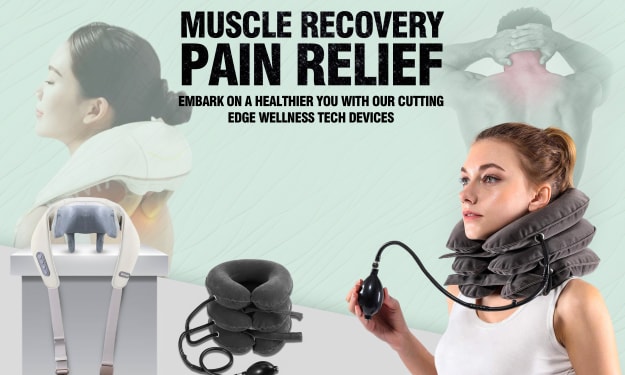
here is a comprehensive guide on how to get rid of acne:
Acne is a common skin condition that affects many people, regardless of age or gender. It occurs when hair follicles become clogged with oil and dead skin cells, leading to the formation of pimples, blackheads, and whiteheads. While acne can be frustrating and difficult to treat, there are several effective strategies you can implement to get rid of acne. Here are some steps you can take:
Determine the type of acne: Acne can be classified into different types, including mild, moderate, and severe. Knowing the type of acne you have can help you choose the right treatment plan. Mild acne usually consists of blackheads and whiteheads, while moderate acne may include inflamed pimples and nodules. Severe acne can involve deep cysts and scarring.
Maintain good hygiene: Keeping your skin clean and free of dirt and oil is essential to prevent and treat acne. Wash your face twice a day with a gentle cleanser, and avoid using harsh scrubs or exfoliants that can irritate the skin. Be sure to remove makeup before going to bed and avoid touching your face throughout the day.
Use topical treatments: Topical treatments, such as benzoyl peroxide, salicylic acid, and retinoids, can help to reduce acne by unclogging pores and reducing inflammation. These treatments are available over-the-counter or by prescription from a dermatologist, and should be used as directed.
Consider oral medications: Oral medications, such as antibiotics and hormonal therapies, can be effective in treating moderate to severe acne. These medications work by reducing inflammation, controlling oil production, and killing bacteria. They are available by prescription only and should be used under the guidance of a healthcare professional.
Manage stress: Stress can exacerbate acne by increasing oil production and inflammation. Therefore, managing stress through relaxation techniques, such as yoga or meditation, can help to reduce acne symptoms.
Make dietary changes: Certain foods can trigger or worsen acne, such as dairy, high-glycemic index foods, and processed foods. Therefore, making dietary changes, such as eating more fruits and vegetables, whole grains, and lean protein, can help to reduce acne symptoms.
Avoid picking or squeezing acne: Picking or squeezing acne can worsen inflammation and lead to scarring. Therefore, it's essential to avoid touching or manipulating acne and seek professional help if needed.
Seek professional help: If acne persists despite home remedies, seeking professional help from a dermatologist can be beneficial. They can provide customized treatment plans, such as chemical peels, laser therapy, or extractions, to help improve acne symptoms.
In conclusion, getting rid of acne requires a combination of good hygiene, topical and oral treatments, stress management, dietary changes, and professional help if needed. Remember, acne treatment takes time, and it's essential to be patient, consistent, and committed to your treatment plan to achieve lasting results.
here are some additional tips specifically for teens:
Avoid touching your face: Teenagers often have a habit of touching their face frequently, which can transfer oil, dirt, and bacteria to the skin and worsen acne. Therefore, it's important to avoid touching your face as much as possible.
Use oil-free skincare products: Using oil-free skincare products can help to reduce oil production and prevent clogged pores, which can lead to acne. Look for products labeled "non-comedogenic" or "oil-free."
Don't over-wash your face: Over-washing your face can strip the skin of its natural oils, leading to dryness and irritation. Wash your face twice a day with a gentle cleanser and avoid scrubbing too hard.
Wear sunscreen: Sun exposure can worsen acne and lead to hyperpigmentation and scarring. Therefore, it's important to wear sunscreen with at least SPF 30 to protect your skin from harmful UV rays.
Exercise regularly: Regular exercise can help to reduce stress and improve circulation, which can improve acne symptoms. However, be sure to shower and change clothes after exercising to avoid sweat and bacteria buildup.
Eat a healthy diet: A healthy diet rich in fruits, vegetables, whole grains, and lean protein can help to reduce acne symptoms. Avoid eating too much sugar and processed foods, which can worsen acne.
Don't share makeup or skincare products: Sharing makeup or skincare products can transfer bacteria and oil to the skin, leading to acne. Therefore, it's important to avoid sharing these products with friends or family members.
Talk to your dermatologist: If you have persistent acne that's affecting your self-esteem or causing scarring, talk to your dermatologist. They can provide customized treatment plans and advice to help improve your acne symptoms.
In summary, teens can reduce and prevent acne by maintaining good hygiene, using oil-free skincare products, wearing sunscreen, exercising regularly, eating a healthy diet, avoiding sharing makeup or skincare products, and seeking professional help when needed. Remember, it's essential to be patient and consistent with your acne treatment plan to achieve lasting results






Comments
There are no comments for this story
Be the first to respond and start the conversation.